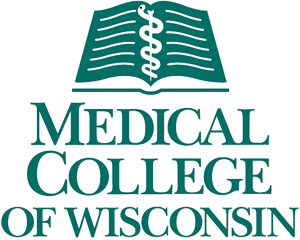Postdoctoral Researcher
 Medical College of Wisconsin Medical College of Wisconsin | |
 United States, Wisconsin, Milwaukee | |
 Nov 19, 2024 Nov 19, 2024 | |
|
Position Description: Consistent with the best practices and environment for professional development (please see updated MCW Postdoctoral Researcher Handbook that took effect July 1, 2024) the Sorci-Thomas Laboratory at the Medical College of Wisconsin (MCW) is seeking a postdoctoral fellow (0-1/2 years) with firm commitments for competitive salaries and career opportunities to launch his/her trajectory journey in basic scientific research. Supported by a new RO1 from the NIDDK, the increased prevalence of obesity in the US population continues to drive greater risk for developing type 2 diabetes and cardiovascular disease (CVD). Excessive caloric intake stresses adipocytes into storing lipid in an unhealthy manner, directing lipid into existing adipocytes, known as adipocyte hypertrophy. On the other hand, healthy adipose tissue expansion and remodeling occurs when adipose tissue precursor cells (PC) in the stromal vascular fraction (SVF) differentiate to create new pre-adipocytes which store lipid, called hyperplasia. Single cell sequencing of visceral adipose tissue (VAT) reported in 2018 have identified two main types of PCs in the SVF, one called adipocyte precursor cells (APCs), while the other is a fibroinflammatory adipocyte progenitors (FAPs). As their names implies APC are pre-adipocytes which given the proper signals, differentiate into mature adipocytes, while FAPs, can secrete cytokines inhibiting APC differentiation and initiating inflammation. Also influencing APC and FAP lineage in the SVF are the transforming growth factor beta (TGFb)-like signaling pathways which inhibit adipogenesis, while bone morphogenetic protein (BMP)-like signaling promotes adipogenesis. Recently we discovered that both VAT PCs, APCs and FAPs express high levels of the extracellular matrix (ECM) protein, procollagen endopeptidase enhancer protein 2 (Pcpe2, gene name Pcolce2) whose expression decreases as APCs become committed adipocytes. We found that Pcpe2 is significantly upregulated (>2-4-fold by both TGFb1, and/or HFD feeding) suggesting that Pcpe2 may play a role in TGFb-like signaling pathways in VAT PCs. We are looking for a creative post doctoral fellow who will assist in studying how Pcpe2 expression impacts TGFb /BMP-like signaling pathways within VAT PCs during HFD induced adipose tissue expansion and remodeling. As a former Chair of the Atherosclerosis, Thrombosis and Vascular Biology Council of the American Heart Association and co-director of an NHLBI T32 Training program in Signature Transdisciplinary Cardiovascular Sciences based at MCW's Cardiovascular Center, I invite you to send inquiries to Mary Sorci-Thomas, PhD FAHA, Professor of Medicine and Secondary Appointment in Pharmacology and Toxicology:msthomas@mcw.edu. Purpose According to the National Institute of Health (NIH) and the National Science Foundation (NSF), a postdoc is an individual who has received a doctoral degree (or equivalent) and is engaged in a temporary and defined period of mentored advanced research training to enhance the professional skills and research independence needed to pursue his or her chosen career path. In addition, according to the National Postdoc Association (NPA), Postdoctoral appointees can pursue basic, clinical or translational projects so long as their primary effort is devoted toward their own scholarship. Postdocs are essential to the scholarly mission of the mentor and host institution, and thus are expected to have the freedom to publish the results of their scholarship. Characteristics of a postdoctoral appointment: It is expected that postdocs at MCW, with the assistance of their supervisor, will:
Primary Functions
Knowledge - Skills - Abilities Required knowledge: biology, chemistry, mathematics, statistics, documentation, records management, data utilization, complex problem solving, critical thinking, resource management, and writing skills Skills and abilities: This will vary based on the hiring manager's preferences and should include things that can be learned or trained for. Specifications Minimum Required Education:
Preferred Experience:
| |

